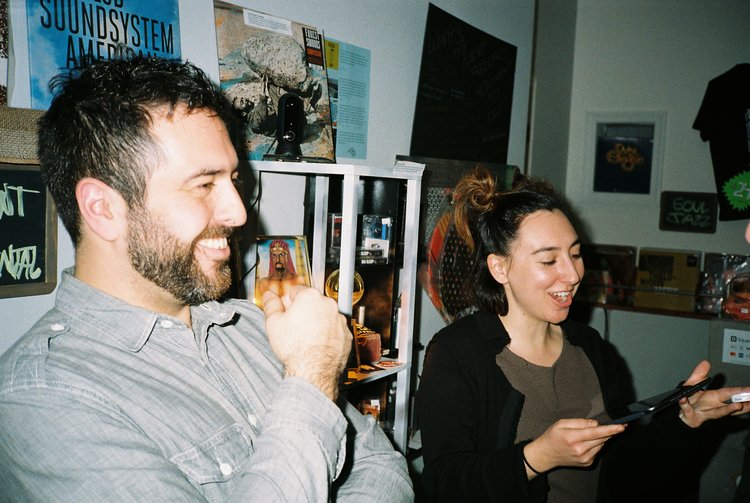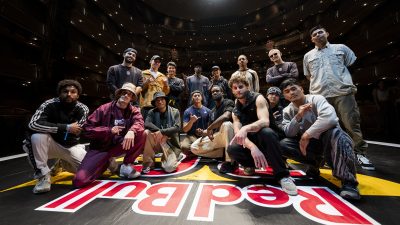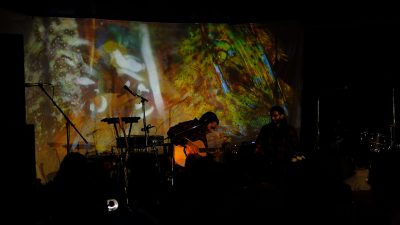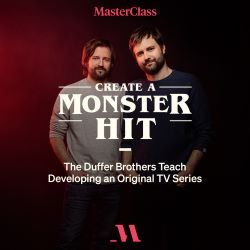Pairing wine and vinyl with Cinderblock People, part II

text by Matt Caprioli
A Harlem store pairs wine with records, creating realness in an age of political disconnect and tyrannical clouds. This is part two the mini series.
Why pair records with wine?
Earlier in the evening, Lombardo looked at the bond between picking a record and picking a wine.
“I think of selling records like selling wine because there’s some objectivity to this is a good region, maker, or year, but there’s a subjective taste and preference for that choice, too.”
Everyone at Cinderblock People was drawn to those kinds of involved, human decisions. There’s a tangible presence to record and wine curation that’s spotty when you stream music you don’t own.
Records imprint presence; how they’re recorded is of equal importance to what’s recorded. If they’re scratched or dinged up, their past markings are encoded to present listenings. A record conveys shifting moods and atmospheres. When someone speaks or sings or plays on a record, you’re not only getting their sound; you’re getting a sense of where they’re coming from, what the room smelled like, or whether they closed their while singing.
Back in the analog world, where you recorded mattered. Hence the rise of Electric Lady in New York or Trident Studios in London. Nowadays, record studios are interchangeable. DJs swap tracks from other continents. Some pop stars have never met the person rapping on their album. In the digital world, people don’t have to talk directly or ever touch the same soil to make music. But they do in the analog world. For good and bad, making records forces people to own up to where they come from.
Iceberg Slim was a product of his time. His misogyny is pervasive throughout Reflections. In the last song on side A, “Broadway Sam,” there’s a pungent homophobia that, as a gay man in 2018, I choose to laugh off for its own fear-driven logic. Sam was a pimp turned drug addict who, after a certain Mabel – “the broad who slew him” – refused to give him all her money, had to pimp himself out to men, dying, Iceberg Slim reports, in gay shame.
Iceberg Slim’s “Mama Debt”
Lombardo turned the record over. Charnay introduced the Trabun Syrah from Cachapoal Valley of his native Chile. The 2013 wine reflects Iceberg Slim’s evolution from a “prancy” boy to one rule through deception and violence, as told in Side B’s “Durella (du Fontaine)” and “Mama Debt.”
Side B begins with Iceberg Slim “stalking hoes right in the middle of the square.” Another pimp sells him pot; they admire the others’ gaudy flair and rainbow suits.
They see Durella, a master prostitute and free agent; she has the looks and class that need no middleman. To win her over for personal and professional reasons, Iceberg Slim treats her to peacock eggs, cocaine, and enormous steaks. The two partner up (she nicknames him Candy) and it’s all fun and games until Durella plays her hand against him.
Indeed, the first Syrah (Alain Voge Cotes du Rhone) was easier to take in than the fuller bodied, spicer Trabun Syrah. Either way, “We can safely say that Syrah is the pimp of wines,” Charnay said.
Iceberg Slim lands in jail. A therapist asks if he hates his mother. No, he says, and wonders if it’s ever possible to repay a “Mama Debt.” When he hears his mother is dying, he’s granted a brief visit. On her deathbed, he tells her he’s, “quit the pimp game….I’ll play the square way to keep ole wolf at bay.” But she doesn’t believe him.
She starts talking about Jesus, seeing him, or just hallucinating. Iceberg Slim says Jesus is playing her, just like the white people who kept her down all her days; the same force that left him little choice but to become a pimp. As Reflections closes, Iceberg Slim declares, “Living ain’t much; dying is grand.” With “death on her breath,” his mother is the model of redemption and resistance within a usurious, racist world. Reflections ends with the once smoother-talking Iceberg Slim shuddering with a mournful realization: “Ain’t no way to pay a mama debt.”
The Cinderblock People Community
In truth, learning so much about wine and records (and Iceberg Slim’s gritty past) can be tiring. Yet I left Cinderblock People feeling a more tangible connection to the world. I had a greater notion of other person’s life stories; the obstructions people commonly face that I’m able to dodge. I was grateful for the earth finding these grapes. I was grateful for their technology which, when all your voice memos could be lost in the next Apple iPhone upgrade, seems more permanent. It’s a distinct way of feeling the world, wine and vinyl. It’s a way of finding and respecting roots.
Which is the lofty ambition of Cinderblock People. As Lombardo and Weill put it on their website: “Over the years, the name seems to make more and more sense given we live and work and play in a complex and diverse city. We are urban warriors, for better or worse: Cinderblock People trying to thrive in a harsh, but fertile environment.”
This first wine-record pairing, one of many Charnay and Cinderblock People have planned, fosters community in a time where more New Yorkers are happy to sling around pre-furnished apartments. We’re entering a digital cloud. Everything can be outsourced – how you cook, how you clean, your friends, loves, and family, even. In a time where you can rent the runway, rent out your bed, stream anything on Spotify with the illusion of ownership, have all your clothes or books or wine selections curated and packaged and delivered to you, simple acts like pairing records to wines can give you a rare sense of being an autonomous being ready to experience things with guides, not dictators.
If the medium is the message, records suggest that where and when something was recorded is just as important as the content itself. Streaming, as convenient as it is, has no concept of the past; its connection to Earth is false and shrouded in numerals. Businesses nowadays, especially in SaaS [Software-as-a-Service] are all about “agile methodology” and “decoupling services.” It’s simply easier to extract value if people and products remain divided, disparate, and ready to procure a “synergy.” I’m starting to see why records are making a comeback. There’s a want for roots, connection, for something heartfelt, thoughtful, and real.













